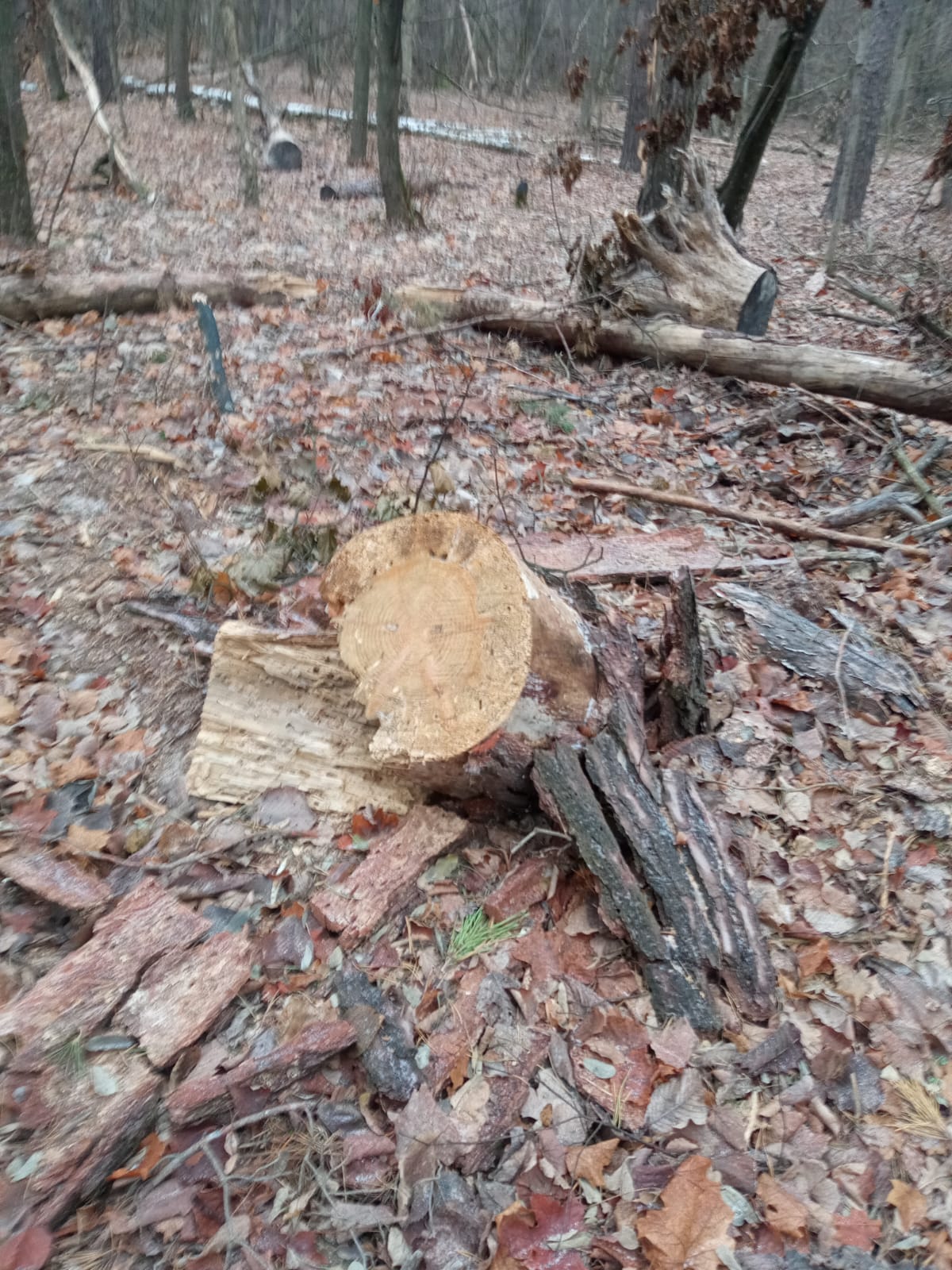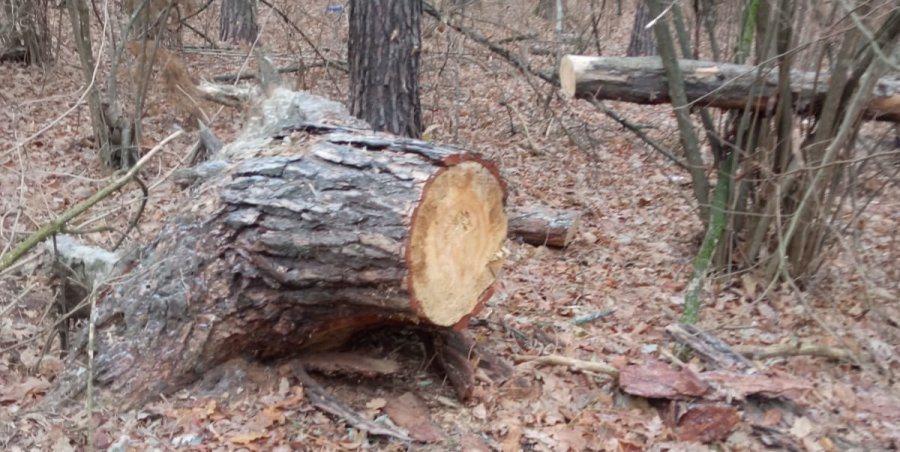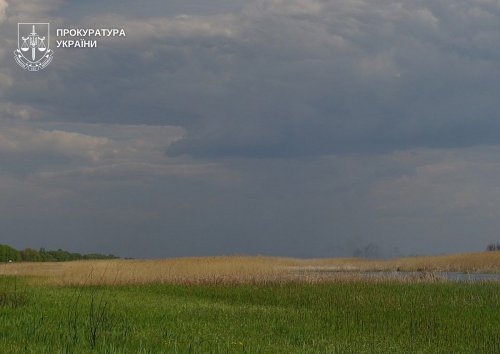New illegal logging sites have appeared in the Bilozerka National Park in 6 quarters at once.
They were discovered by activists of the Kyiv Ecological and Cultural Center (KECC) and reported it on Facebook.
They stated that “black loggers” had cut down oaks in blocks 69 and 71, as well as pine trees in blocks 114, 115, 124, and 125.

Photo: facebook.com/kekz.ua.
The activists reminded that this year, based on the materials of the CECC, law enforcement officers have already opened 3 criminal cases on offenses that may involve officials of the Bilozerka National Park. Two of them are related to illegal logging and another one to illegal soybean cultivation on the territory of the nature reserve fund.
The KECC attributes the problems with compliance with the environmental regime to both the park's management and its subordination, as Bilozerkyi is subordinated to the State Administration of the Office of the President of Ukraine (SADU).
“The State Administration is not a nature conservation body, but an economic body, and therefore is not interested in protecting the park's unique old-growth forests,” the activists believe.
In their opinion, the park should be transferred to the jurisdiction of the Ministry of Environment.
In mid-May, EcoPolitics reported that CECC environmental activists were sounding the alarm about the massive illegal felling of centuries-old oaks on the territory of Biloozersky. They assumed that this was either the work of a separate gang of foresters, protected by the park's management, or the park's management itself.
A month later, in June, CECC volunteers, together with police investigators, found 20 centuries-old oak trees cut down in the protected area of the Biloozersky National Park. Environmental activists say that after that, the Boryspil Prosecutor's Office opened a criminal case over the incident, and the park director resigned, frightened.
According to the CECC, the park is currently managed by the first deputy director, Mykhailo Margitych, under whom illegal logging continues.
And in mid-November, environmental activists claimed that unknown persons were illegally growing soybeans on 20 hectares of the park's territory.





